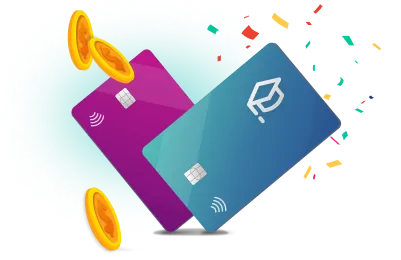Best credit cards for students of 2026
Start your credit journey while you’re still in college with a student card. Get matched to credit cards from our partners based on your unique credit profile.⍉

Get started early
Build good credit now to make it easier to buy a car or get approved for rent.
Be prepared for emergencies
While you build up savings, a credit card could help cover unexpected expenses.
Learn to manage your money
Practice good financial habits like, paying off your balance each month.
Browse categories
All student credit cards
3 partner offers
Capital One Quicksilver Student Cash Rewards Credit Card
Intro bonus: | Earn $50 Cash Back when you spend $100 in the first three months |
|---|---|
Ongoing APR: | 18.49% - 28.49% (Variable) |
Rewards: | 1.5% - 5% (cash back) |
Annual Fee: | $0 |
Capital One Savor Student Cash Rewards Credit Card
Intro bonus: | Earn $50 Cash Back when you spend $100 in the first three months |
|---|---|
Ongoing APR: | 18.49% - 28.49% (Variable) |
Rewards: | 1% - 8% (cash back) |
Annual Fee: | $0 |
Avant Credit Card (CRM Deployment Date: 8/14/19)
Ongoing APR: | 25.99% Variable |
|---|---|
Rewards: | N/A* |
Annual Fee: | $29 |
How to find the best credit cards for students
Consider annual fees
See if the extra perks outweigh the cost of the annual fee.
Look for 3-bureau reporting
Build your credit with a card that reports to all 3 credit bureaus.
Compare rewards and perks
Some cards may offer cash back or other benefits.
Check international fees
See if there’s foreign transaction fees if you plan to travel abroad.
Start with your FICO® ScoreΘ and see card offers matched to your credit profile.
Get started for free







